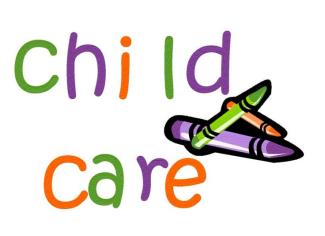
An Overview of Dependent Care FSAs
INTRODUCTION
Balancing work and family responsibilities can be challenging, especially when it comes to managing the high cost of dependent care. From childcare and preschool to adult day programs, caregiving expenses can place a significant financial strain on households. A benefit designed to help offset these costs is the Dependent Care Flexible Spending Account (DC FSA). For eligible employees, contributing to a Dependent Care FSA can lead to substantial tax savings and predictable budgeting throughout the year.
This article explains what a Dependent Care FSA is, who is eligible, how it works, and key financial and practical reasons to consider before electing to contribute to one.
WHAT IS A DEPENDENT CARE FSA?
A Dependent Care Flexible Spending Account (FSA) is an employer-sponsored, tax-advantaged savings account that allows employees to set aside pre-tax income to pay for eligible dependent care expenses. These expenses must enable the employee (and their spouse, if applicable) to work, actively seek employment, or attend school full-time.
Funds are deducted from each paycheck before federal income, Social Security, Medicare and state income taxes (in nearly all states) are applied, reducing overall taxable income. Instead of using the DC FSA money to pay for qualified expenses directly, you pay the qualified expenses out-of-pocket and then apply for reimbursement from the DC FSA.
Dependent Care FSAs are similar in structure to Medical FSAs, but they serve a different purpose: while Medical FSAs cover medical-related expenses, Dependent Care FSAs strictly cover costs associated with caring for dependents.
WHO QUALIFIES AS A DEPENDENT?
Funds in a Dependent Care FSA can be used for expenses related to:
- Dependent children under age 13.
- A spouse or dependent who is physically or mentally incapable of self-care.
An adult dependent (such as an aging parent) who lives with the employee and requires assistance with daily living.
These dependents must live in the household for more than half the year and be incapable of self-care. See https://www.irs.gov/publications/p503#en_US_2023_publink1000203267 for more details.
GENERAL REQUIREMENTS TO PARTICIPATE
Work requirement: To be eligible, you and your spouse must be working or looking for work.
Contribution limits: The amount of DC expenses you can be reimbursed for is limited by annual caps and your earned income (and your spouse’s earned income, if you are married), as noted below.
Exceptions to the work requirement:
Full-time student: If your spouse is a full-time student, they are considered to be "working" for the purpose of a DCFSA.
Incapable of self-care: If your spouse is physically or mentally unable to care for themselves, they are also considered to be "working".
Actively looking for work: Your spouse can be considered "working" if they are actively looking for a job, but they must have some earned income during the year for the expenses to be considered work-related.
CONTRIBUTION LIMITS
The IRS sets annual contribution limits for Dependent Care FSAs. Contribution limits may vary from year to year – for 2026, contributions are capped at:
- $7,500 per household for married couples filing jointly or single taxpayers.
- $3,750 per household, if married and filing separately.
Your contribution cannot be more than the lesser of:
- the household limit specified above or
your (or your spouse's) earned income.
For example, if you earn $50,000 per year and your spouse earns $5,000 per year and you file married filing jointly, your contribution limit is $5,000 (not $7,500) based on your spouse’s earnings.
ELIGIBLE EXPENSES
Eligible services must be necessary for you and/or your spouse to work and earn an income. Typical expenses that qualify under a Dependent Care FSA include:
- Daycare, preschool, and nursery school (excluding kindergarten tuition)
- Before- and after-school care programs
- Summer day camps (not overnight camps)
- Nannies, au pairs, babysitters, and in-home caregivers
- Adult daycare or elder care programs
- Licensed care facilities for dependents unable to care for themselves
Expenses not covered include schooling beyond preschool, tutoring, meals, transportation, and care provided by a spouse or dependent.
KEY REASONS TO CONTRIBUTE TO A DEPENDENT CARE FSA
1. Significant Tax Savings
The primary benefit of a Dependent Care FSA is reducing taxable income. Because contributions are made pre-tax, employees may save hundreds or even thousands of dollars annually, depending on their tax bracket and contribution amount. These savings apply to federal and state income tax, Social Security tax, and Medicare tax, making the effective benefit greater than a standard tax deduction.
2. Helps Manage High Childcare and Caregiving Costs
Care expenses can consume a large percentage of household income, especially for families with young children or those caring for aging relatives. Dependent Care FSAs create a structured way to set aside funds throughout the year, making the saving process automatic and easier to manage.
3. Supports Working Parents and Caregivers
Because funds must be used to enable the participant to work, Dependent Care FSAs support employment continuity. For many families, access to affordable childcare directly affects the ability to accept job opportunities, pursue promotions, or maintain full-time employment.
4. Can Be Used Alongside the Child and Dependent Care Tax Credit
In some cases, families may benefit from both a Dependent Care FSA and the federal Child and Dependent Care Tax Credit—although contributions reduce the expenses eligible for the credit. Higher-income households often benefit more from the FSA, while lower-income households may receive greater benefit from the credit. Evaluating both options can help maximize savings.
5. Offers Potential Savings for Elder Care Needs
Caregiving is not limited to children. As more families provide support for aging parents, Dependent Care FSAs offer a tax-advantaged way to fund adult daycare and similar services, giving caregivers financial relief and helping dependents remain safely cared for during working hours.
KEY CONSIDERATIONS BEFORE ENROLLING
A Dependent Care FSA is most beneficial when expenses are predictable. Because most plans follow a "use it or lose it" structure, any unspent funds at the end of the plan year may be forfeited. Some employers offer grace periods or limited carryover options, but these vary by plan.
Employees should also ensure that:
- The dependent meets eligibility requirements
- The caregiver provides receipts and taxpayer identification numbers
Expenses fit IRS guidelines
Thoughtful planning ensures contributions align with real needs and avoids forfeited funds.
CONCLUSION
A Dependent Care FSA is a powerful financial tool designed to reduce the burden of childcare and caregiving costs. By contributing pre-tax dollars to cover eligible expenses, participants can lower their taxable income, save money, and better manage the cost of supporting dependents.
For families navigating high childcare costs, caregivers supporting adults with special needs, or employees seeking ways to optimize workplace benefits, enrolling in a Dependent Care FSA can be a smart and meaningful step toward financial stability.
RESOURCES
https://www.metlife.com/stories/benefits/what-is-dependent-care-fsa/.
https://www.healthequity.com/library/dcfsa-5-rules-you-need-to-know.
https://www.irs.gov/publications/p503#en_US_2023_publink1000203267.
This content was developed from sources believed to be providing accurate information. The information provided is not intended as tax or legal advice, and readers are encouraged to seek advice from their own tax or legal counsel. Neither the information presented, nor any opinion expressed, constitutes a representation by us of a specific investment or the purchase or sale of any securities. Asset allocation and diversification do not ensure a profit or protect against loss in declining markets. This material was developed by Eustace Advisors to provide information on a topic that may be of interest.

